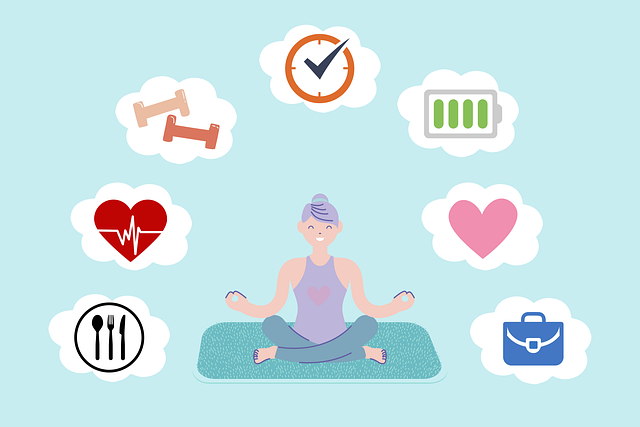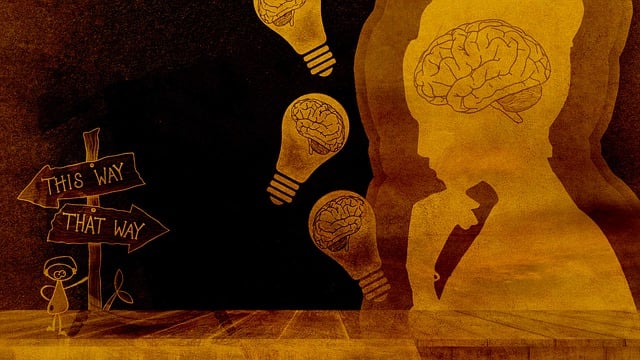Boulder Biofeedback Therapy offers a unique approach to mental health support by focusing on social skills training as a key component for improving outcomes. Using techniques like Mental Wellness Journaling and Conflict Resolution, they help clients manage physiological responses in social situations, boost confidence, and reduce stress. By addressing the mind-body connection, this therapy empowers individuals to navigate social environments more effectively, fostering connections crucial for mental wellness recovery. Their comprehensive training includes cultural sensitivity and stress management tools, enabling clients to participate actively in community initiatives like podcast production and outreach programs.
Social skills training is a powerful tool for managing mental health conditions, fostering better relationships, and improving overall well-being. This comprehensive guide explores the intricate link between social skills and mental health, highlighting the benefits of Boulder Biofeedback Therapy in enhancing interaction abilities. We delve into practical strategies to develop and refine social skills, offering valuable insights for individuals navigating mental health challenges. By understanding these components, you can embark on a transformative journey towards more fulfilling connections.
- Understanding the Connection Between Social Skills and Mental Health
- The Role of Boulder Biofeedback Therapy in Improving Social Interaction Abilities
- Practical Strategies for Developing and Enhancing Social Skills
Understanding the Connection Between Social Skills and Mental Health

In the realm of mental health support, addressing social skills training can be a game-changer for individuals navigating various conditions. The connection between social skills and mental wellness is intricate; effective communication, empathy, and interpersonal connections are cornerstones of overall well-being. Boulder Biofeedback Therapy recognizes this interplay and offers specialized guidance to foster positive relationships and improve mental health outcomes.
Mental Wellness Journaling Exercise, a popular technique within the therapy framework, encourages individuals to reflect on their social interactions. By documenting experiences, emotions, and behaviors, clients can identify patterns that impact their mental state. Additionally, Conflict Resolution Techniques are taught as powerful tools to manage interpersonal challenges, reduce stress (Stress Management), and promote healthier relationships. These strategies empower individuals to navigate social situations with greater confidence and resilience.
The Role of Boulder Biofeedback Therapy in Improving Social Interaction Abilities

Boulder Biofeedback Therapy offers a unique and innovative approach to enhancing social interaction skills for individuals dealing with mental health conditions. Through this therapeutic technique, clients learn to manage their physiological responses during social situations, allowing them to feel more in control and improve their overall confidence. By focusing on the mind-body connection, biofeedback training enables participants to recognize and regulate their emotional states, making it an invaluable tool for those striving for better mental wellness.
Incorporating Boulder Biofeedback Therapy into a comprehensive treatment plan can significantly impact one’s ability to navigate social environments. It empowers individuals to actively participate in the Mental Wellness Podcast Series Production and Community Outreach Program Implementation, fostering connections and building a support system, which is crucial for sustained mental health awareness and recovery.
Practical Strategies for Developing and Enhancing Social Skills

Social skills training plays a pivotal role in managing mental health conditions, offering individuals practical tools to navigate social interactions with confidence and ease. At Boulder Biofeedback Therapy, we emphasize the importance of teaching tangible strategies that can be applied in daily life. One effective approach involves breaking down complex social scenarios into manageable components. For instance, focusing on active listening during conversations allows individuals to better understand others and foster deeper connections. Role-playing exercises can simulate challenging situations, providing a safe space to practice responses and build self-assurance.
Additionally, our Healthcare Provider Cultural Competency Training emphasizes the significance of cultural sensitivity in social interactions. By recognizing and respecting diverse backgrounds, individuals can adapt their communication strategies accordingly, fostering inclusivity and meaningful connections. Stress management techniques, such as mindfulness and relaxation exercises, are also integrated into training to help individuals regulate emotions during social engagements. These practices promote calmness, enabling more effective communication and a greater sense of control in social settings.
Social skills training, particularly when combined with innovative approaches like Boulder Biofeedback Therapy, can significantly improve mental health outcomes. By addressing the connection between social abilities and psychological well-being, individuals with various conditions can develop essential interaction skills. Practical strategies outlined in this article offer a roadmap for fostering meaningful connections, enhancing self-confidence, and navigating social situations more effectively. Incorporating these techniques alongside biofeedback therapy can lead to transformative results, empowering individuals to thrive in their personal and professional lives.









